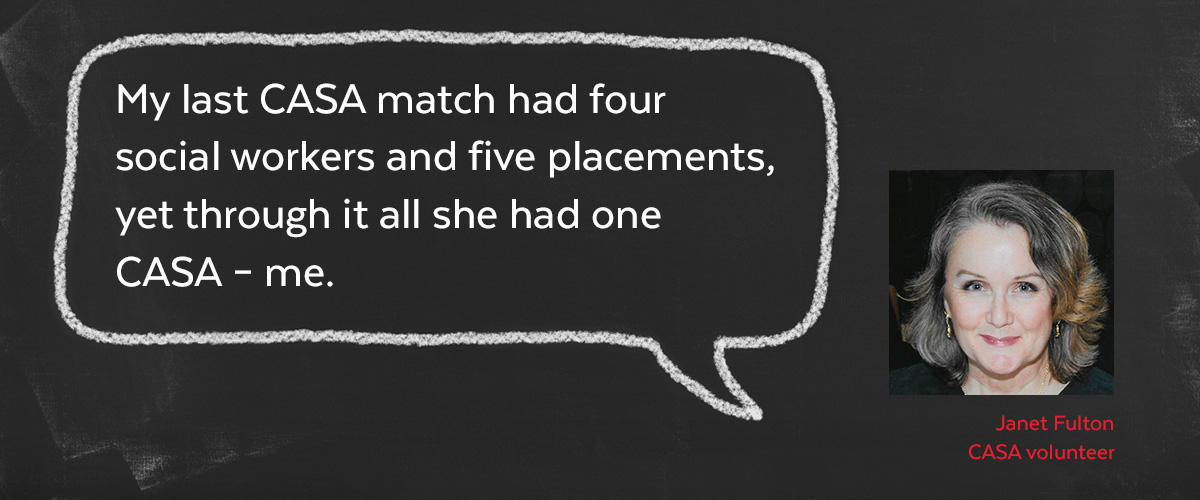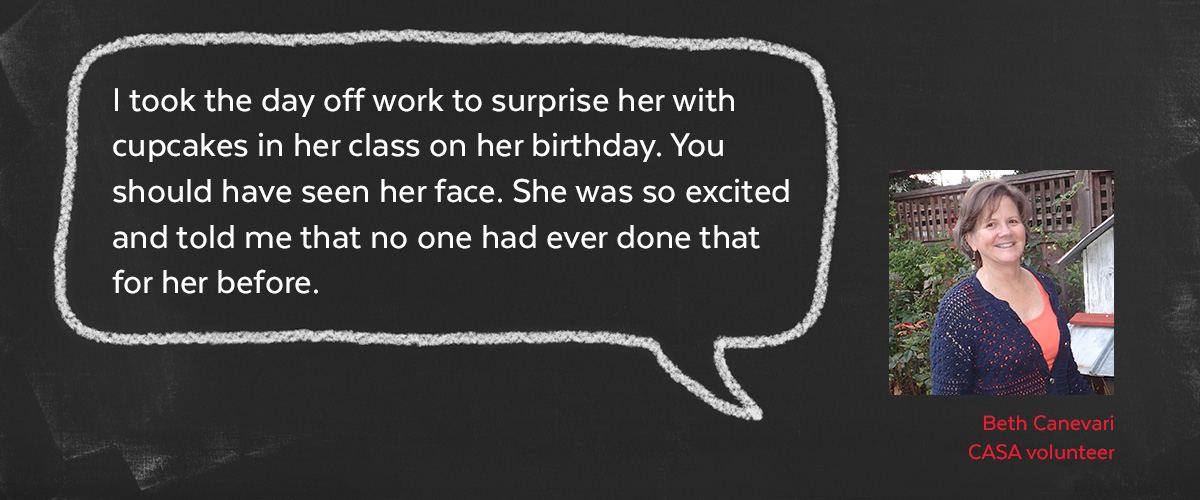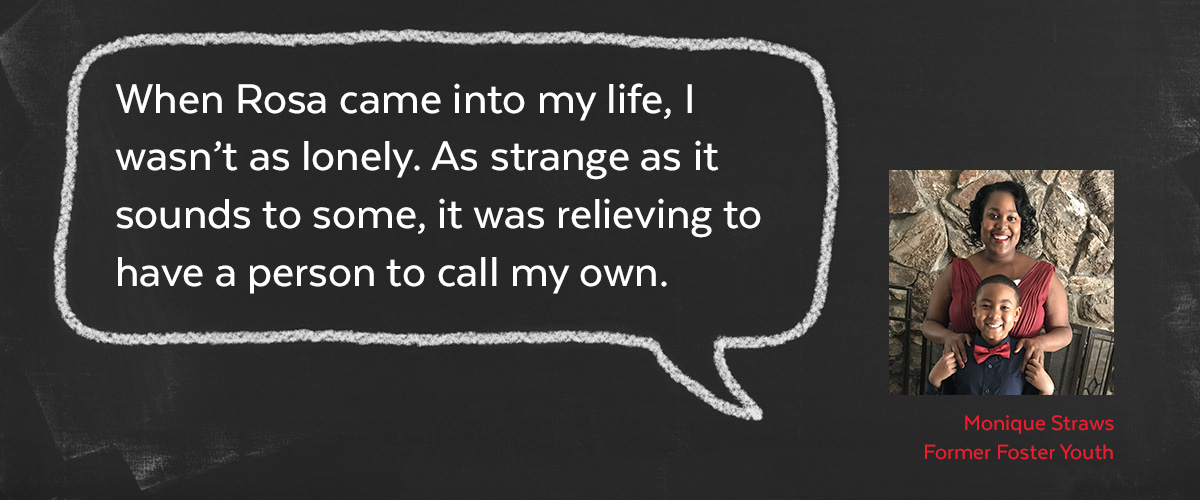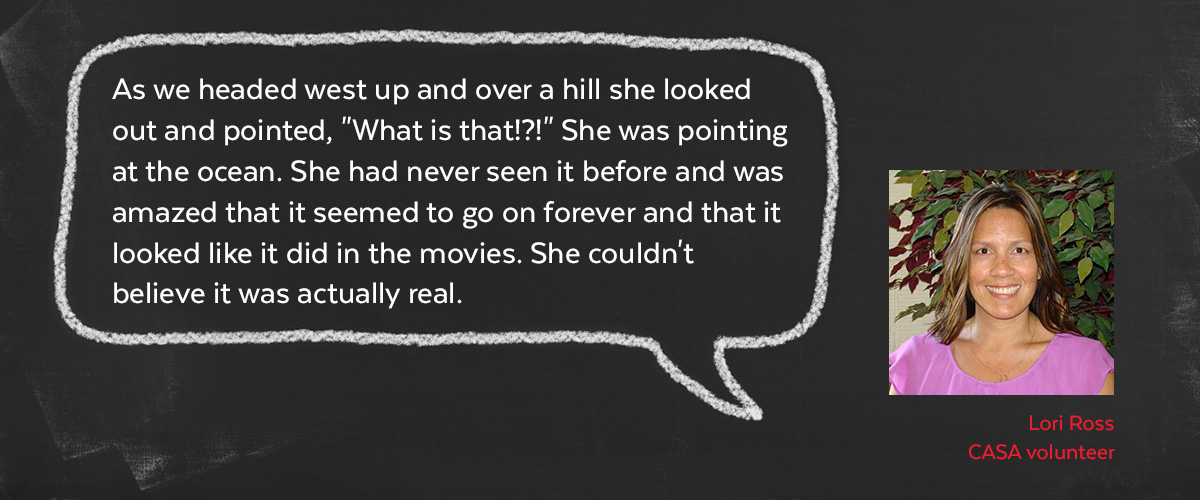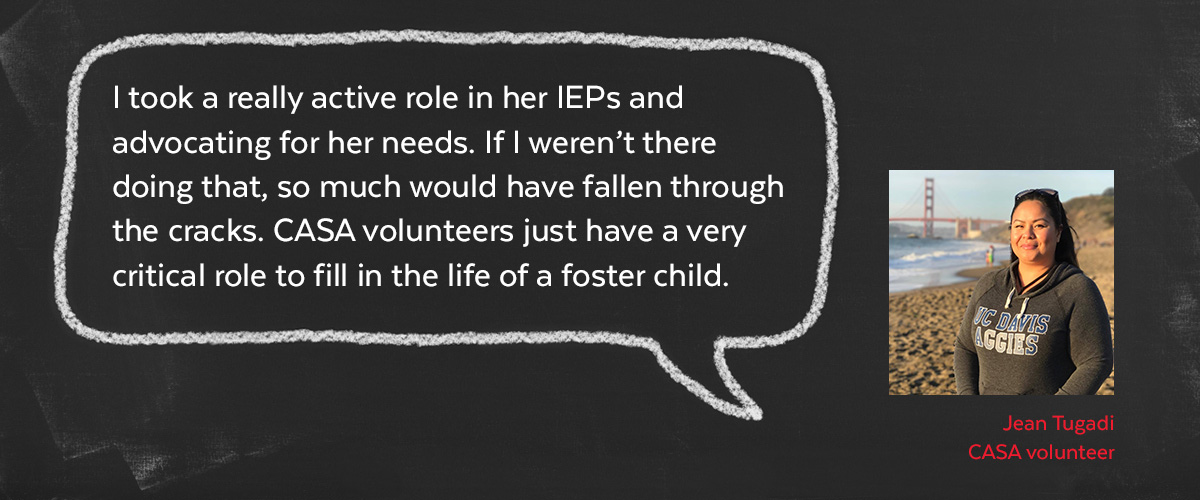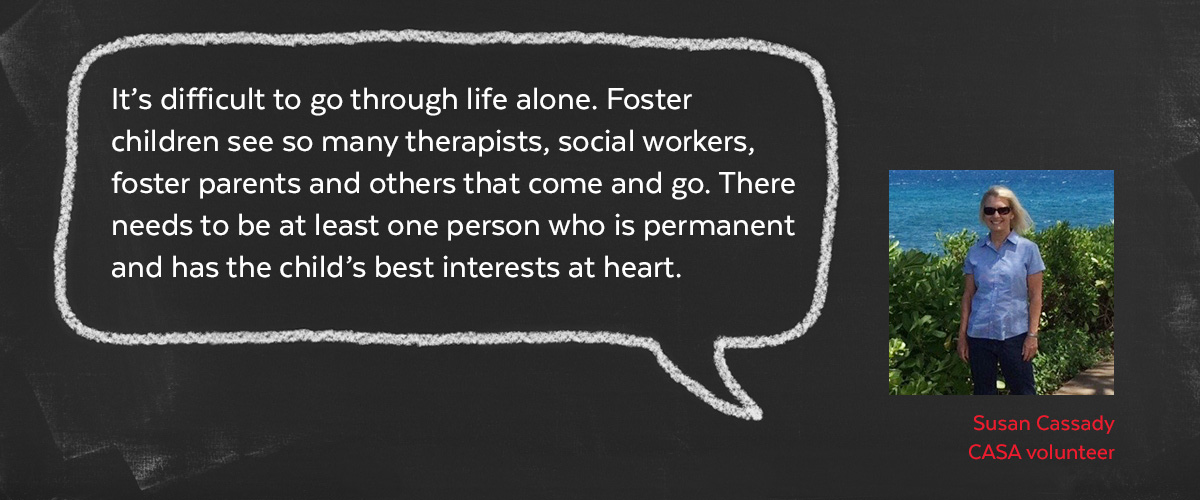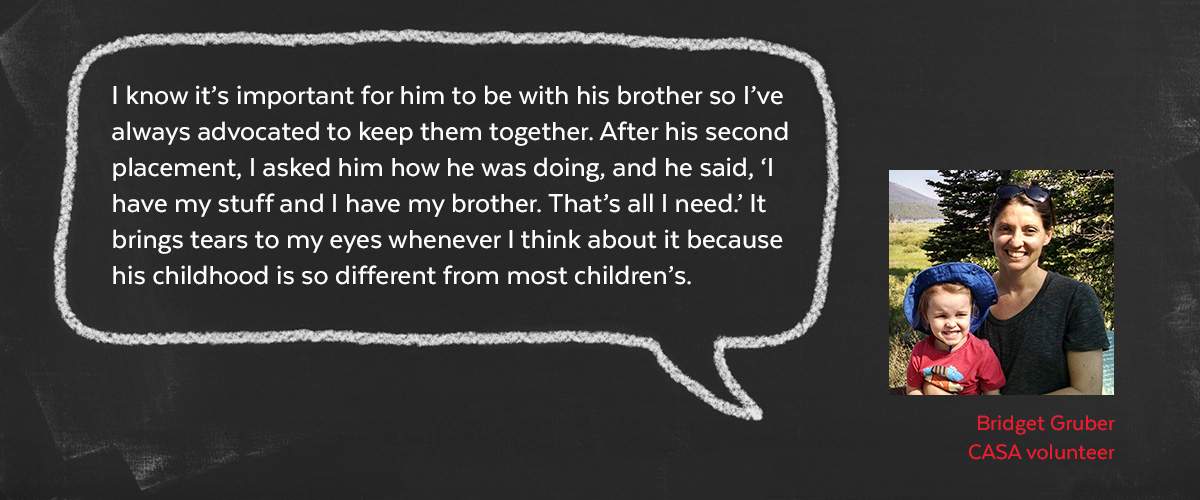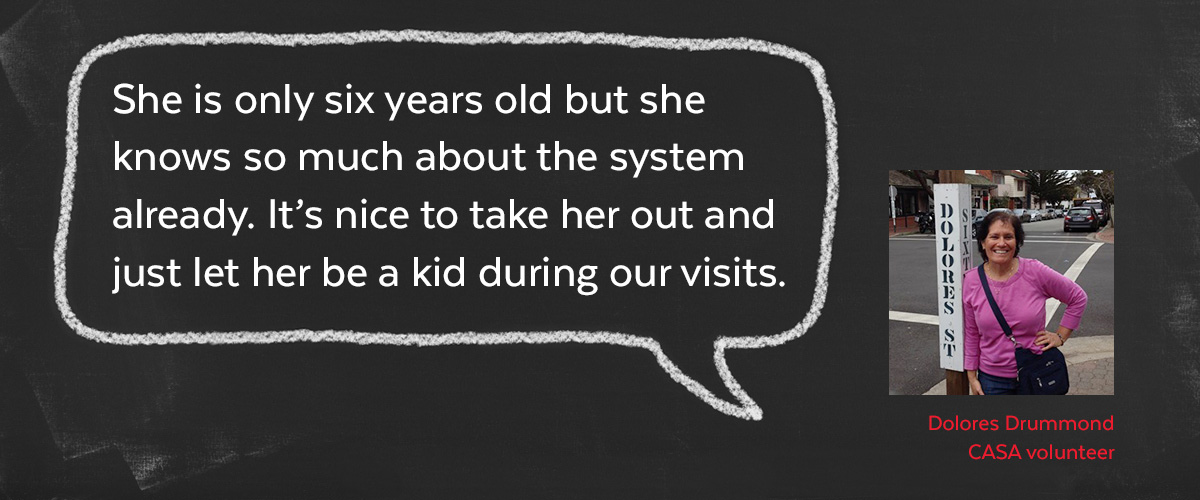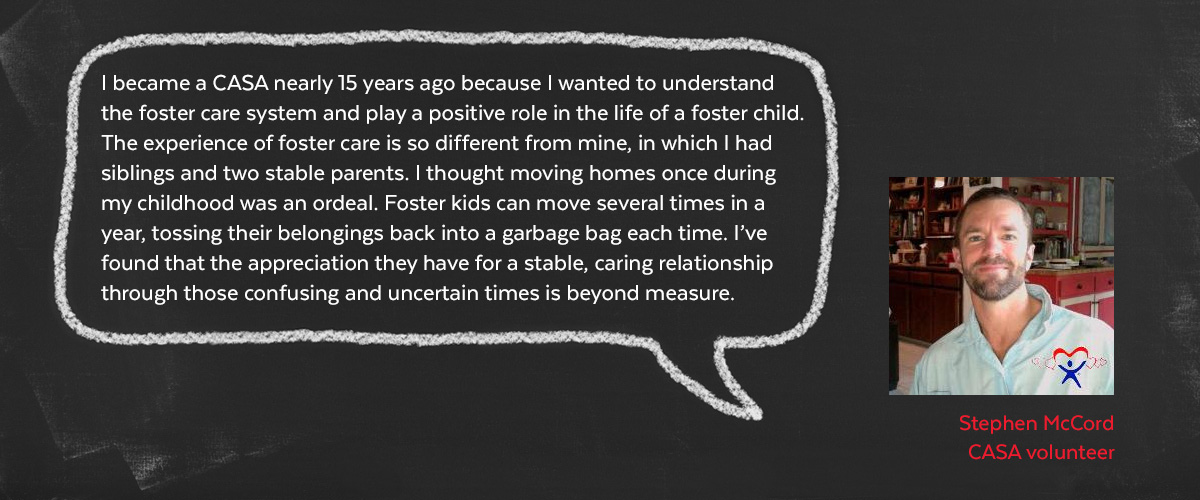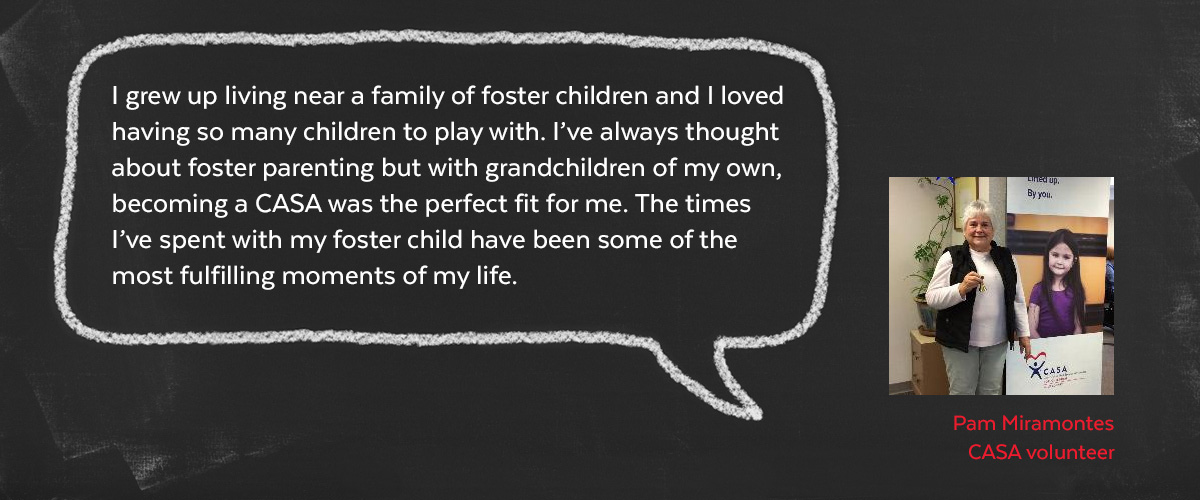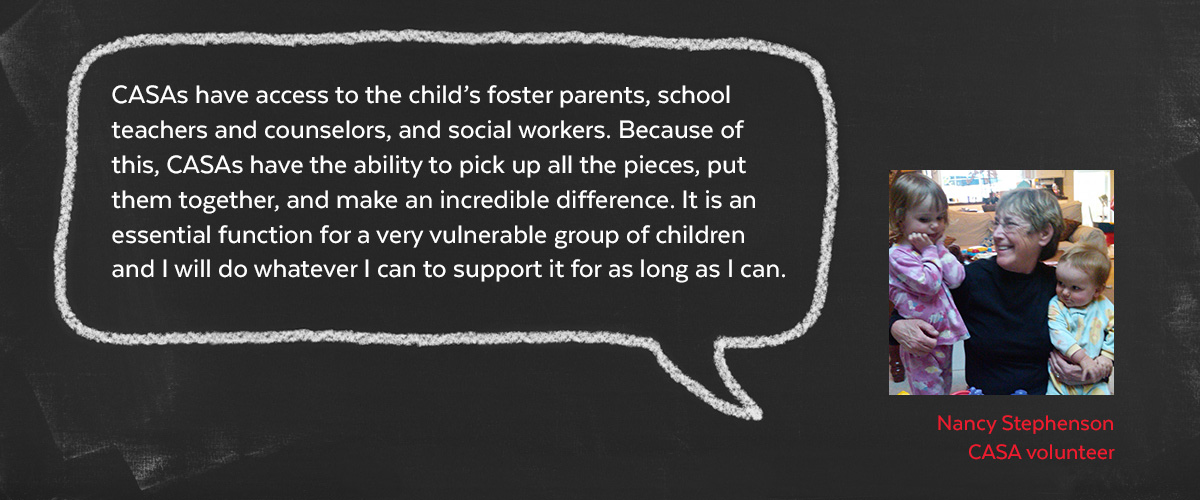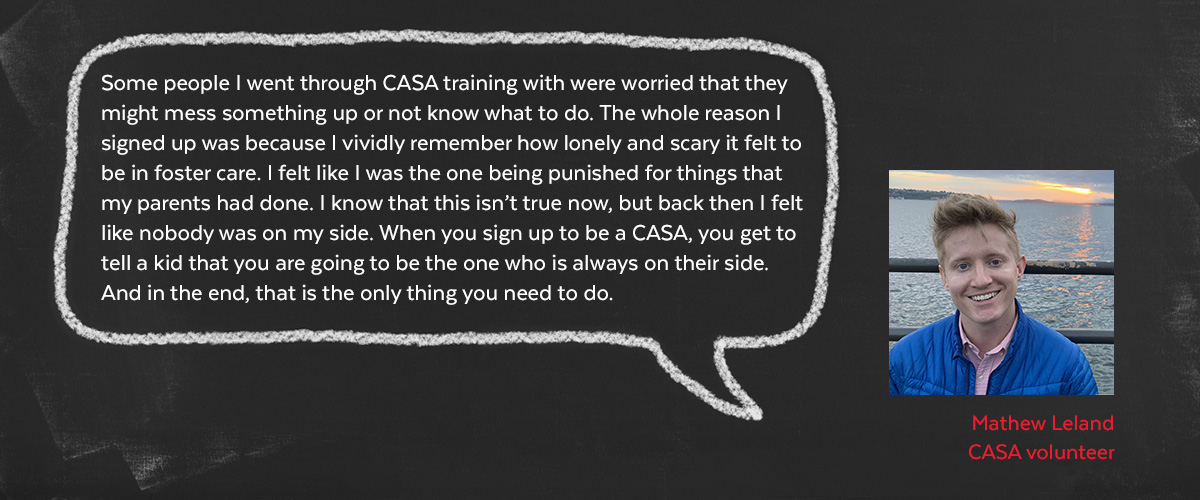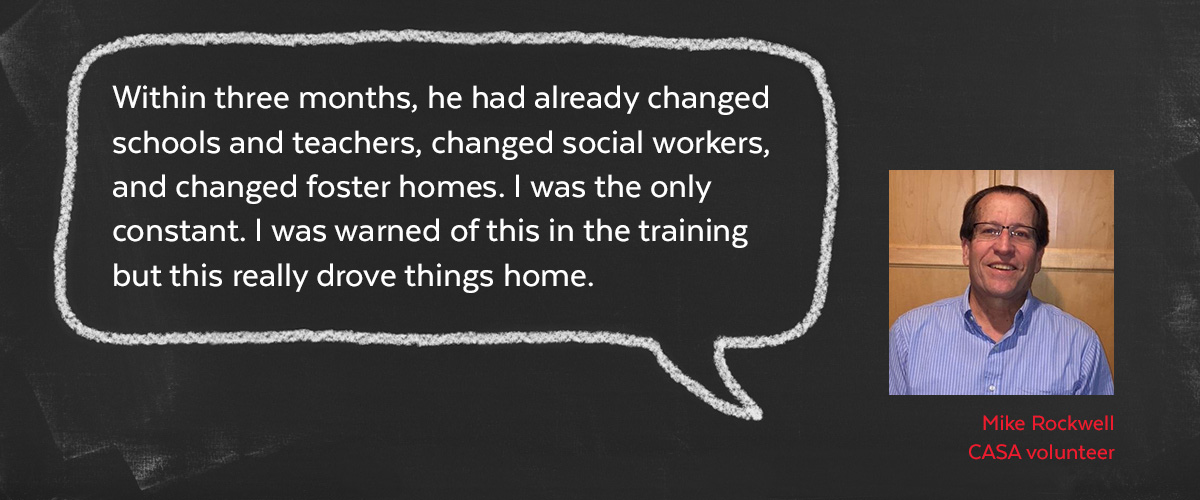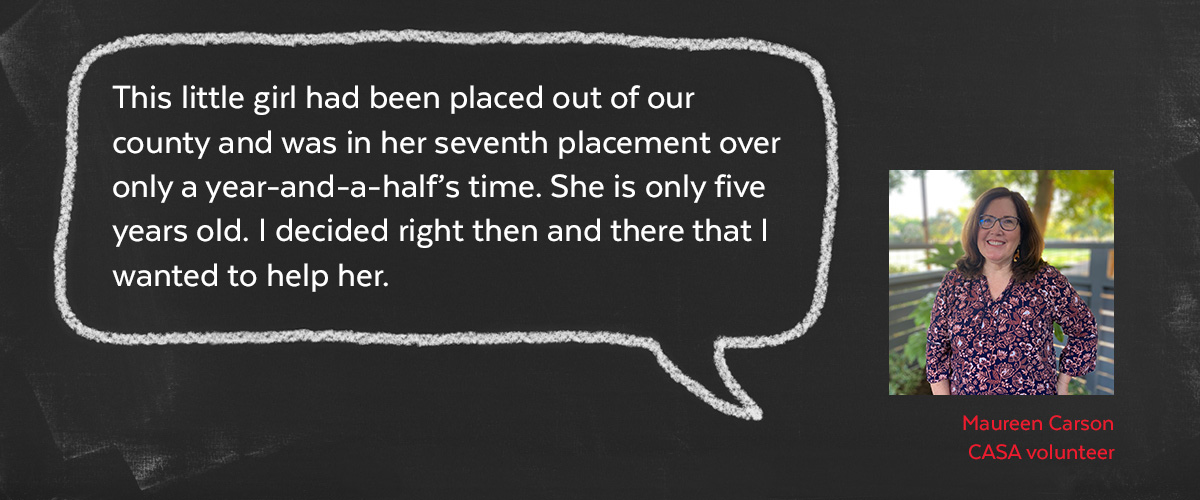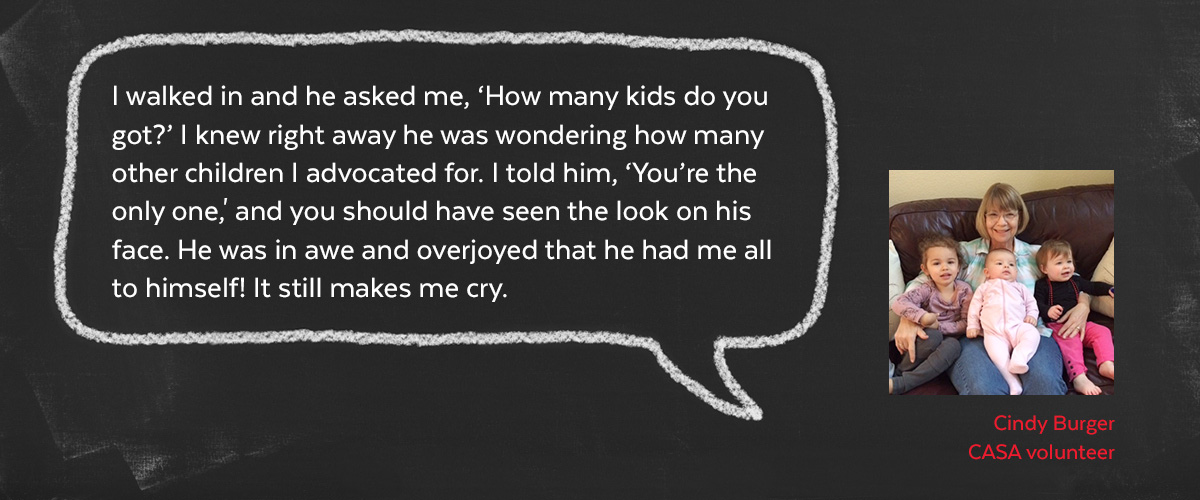When Carol Lawson’s youngest daughter headed to college, she felt the time was right to become a CASA volunteer. “I had heard about the organization over the years in the newspaper and then again at a UC Davis retirement event. I knew I would do it someday and the time felt right.”
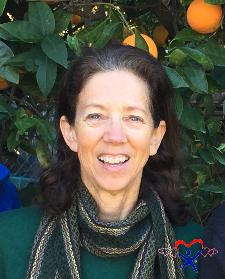
Before retirement, Carol worked at UC Davis. She holds a Bachelor and Master’s degree from UC Davis in physiology and spent a decade researching infant nutrition. After that, she worked in health and safety. “I noticed at my CASA training that a lot of volunteers came from education, psychology, social work, or something in a related field. I started thinking about how I could fill a need and I told the staff that if they have an infant, especially one with health problems that need navigation, to please let me know.” They seemed pleased to have someone who could advocate for a child under those circumstances.
Carol now has two CASA children. One is two years old, and has been with her a year and a half, the other is one year old, and has been with her six months. “I am retired and have more time to give, so I decided to take on another case when I heard of an infant in need.”
While Carol’s cases are both very young, there is no shortage of connection. “I remember early on with each child the first time they smiled at me. It really meant a lot. Both cases have had many changes, from social workers, to judges, to attorneys. In the CASA volunteer training we were warned that we might be the only consistent adult figure in our CASA child’s life, and while I am not the only consistent adult figure in each child’s life, I am certainly one of the few that has remained consistent this far into the process. Encountering frequent changes has really been true for me in my CASA journey. Children need consistency to thrive. So, I provide some consistency and, whenever I get those smiles it makes me feel happy that I can be that consistent and recognizable figure in their lives.”
One of Carol’s CASA children has significant medical issues and both have global developmental delays. She has played an integral role in guiding them through. “I am not afraid to explain medical terminology to caseworkers, biological parents, foster parents, or even the judge. It’s hard to make medical decisions when you don’t fully understand what is being discussed. So, I like to use my background to do whatever I can to make the process easier. I am also not afraid of medical settings and have spent hours by my CASA child’s side after surgeries and procedures.”
Carol hopes anyone with a unique background will consider becoming a CASA volunteer, “There are all kinds of needs out there. You can really put your unique skills to use to help a child with specific needs.”

